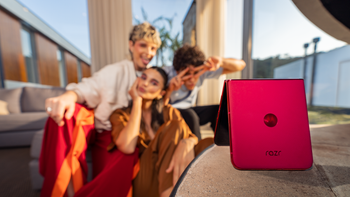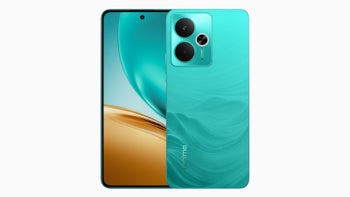Zuckerberg announces $1,500 Meta Quest Pro and takes a shot at Apple

On Tuesday, Mark Zuckerberg unveiled Meta's new $1,499 Quest Pro Virtual Reality (VR) headset. VR gives the user the immersive experience of being in a fabricated environment that is not real, no matter how realistic it looks. Meta's CEO and co-founder took a shot at Apple which is supposed to unveil its own pricey mixed-reality headset early next year.
Zuckerberg announces new $1,500 headset and takes a shot at Apple's "Walled Garden"
While not exactly mentioning Apple by name, the executive did make some comments referencing Apple's so-called "Walled Garden." Mark said, "In every generation of computing, there’s been an open ecosystem and a closed ecosystem, there was Windows and Mac, then Android and iOS. Closed ecosystems focus on tight control and integration to create unique experiences and lock in. Although most of that value ends up flowing to the platform over time."


The executive goes on to say, "I see our role is not just helping to build this open ecosystem, but making sure that the open ecosystem wins out in this next generation of the internet."
Zuckerberg has been angry at Apple ever since last year when the company gave iPhone users the opportunity to opt out of being tracked by apps and websites for the purpose of receiving customized ads. And that hit Meta hard as the App Tracking Transparency (ATT) feature cost the company more than $10 billion in revenue. And while that wasn't the only factor involved, for the year to date Meta's shares are down $210 or a whopping 62%.
Last month, CBS News calculated that Zuckerberg's net worth had declined by $71 billion because of the stock decline. Ouch! That has got to hurt. And we get the feeling that Mark blames Apple for much of the hit he has taken personally. CNBC also reports that some of the executive's animosity toward Apple stems from the 15% to 30% cut Apple collects from in-app transactions made by users of apps installed from the App Store.
Zuckerberg sees VR and Augmented Reality (AR) as the building blocks of a new platform that could be found on a new device that could become more popular than the smartphone. First, let's tell you that AR allows users to see computer-generated data superimposed on top of a live video feed. A good example of this is Google Maps' "Live View" which can be activated while walking.
Users see the view in front of them thanks to a rear camera. On top of that image are arrows that give the user navigation directions while other computer-generated icons point out landmarks and notable locations.
Apple and Meta could also compete over AR glasses
Apple's upcoming headset, nothing more than a rumor at this point, will reportedly be powered by an Apple M2 chip and could feature 16GB of memory. Rumored pricing has Apple's headset costing over $2,000 and perhaps reaching $3,000.
After these headsets are released, it appears that the next item on the agenda is AR glasses similar to Google Glass. Many see AR glasses eventually replacing the smartphone as the glasses can project data into your eyes while doing everything that a smartphone can do. Apple is supposedly working on AR glasses although they are believed to be a few years away.
Zuckerberg made it sound as though Meta is also working on a similar product. "The fundamental technologies across the stack to build augmented reality glasses are coming together. We’ve got displays, sensors, silicon, AI, and more," the CEO said.
In early April of 2012, Google unveiled "Project Glass" to the world releasing "a day in the life of" video that showed how the specs could handle the things that a smartphone could do. But the pricey glasses led many bystanders to wonder if they were being photographed or recorded without permission. Some movie theaters banned Google Glass as they worried that the user could be recording a bootleg video that would be sold illegally.
Eventually, users became known as "Glassholes" and Google stopped selling the device to consumers. Google is reportedly taking another shot at this device and is said to be working on its own AR specs for the public that will look different than Google Glass and more like regular eyeglasses.










Things that are NOT allowed: